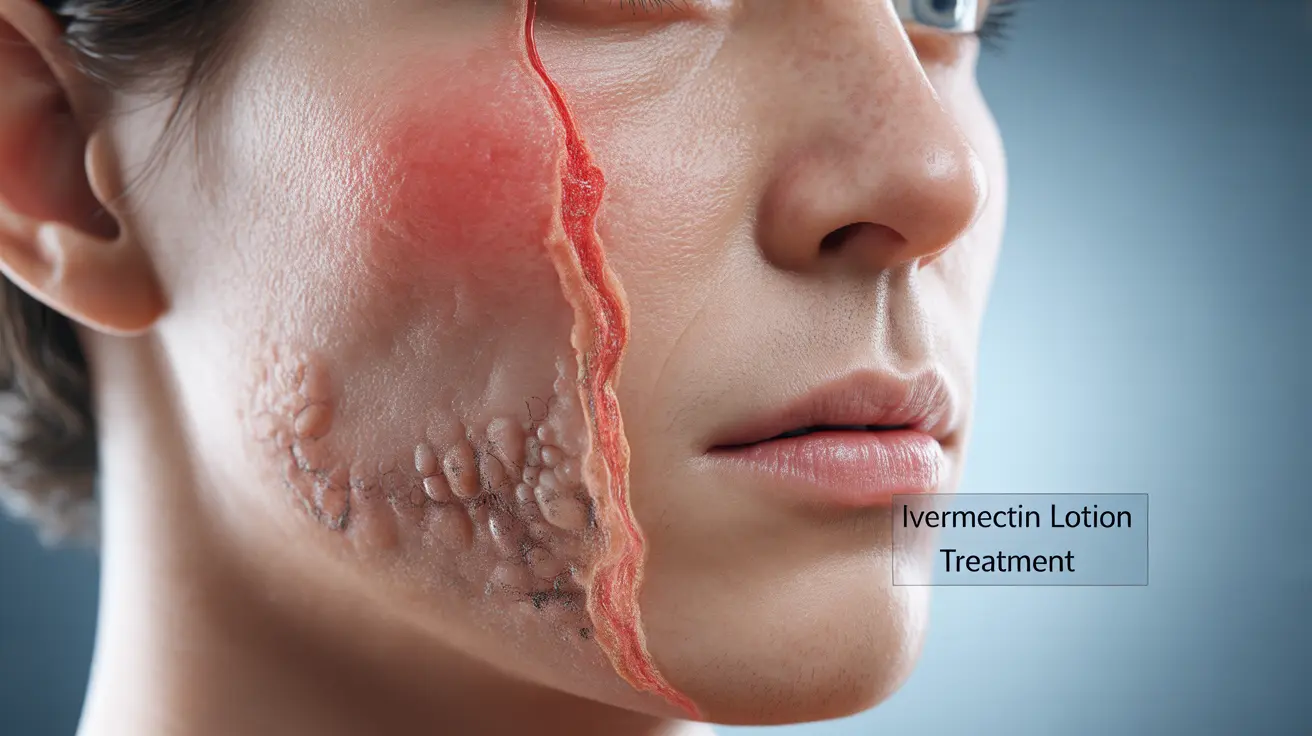For individuals struggling with the persistent redness, bumps, and inflammation of rosacea, ivermectin lotion has emerged as a powerful treatment option. This prescription medication has shown remarkable effectiveness in managing papulopustular rosacea, particularly when other treatments have fallen short.
Understanding how ivermectin lotion works and how to use it properly can make a significant difference in your rosacea management journey. Let's explore everything you need to know about this treatment option, from its mechanism of action to proper application techniques.
How Ivermectin Lotion Works Against Rosacea
Ivermectin lotion tackles rosacea through multiple mechanisms. While primarily known for its anti-parasitic properties against Demodex mites (which may contribute to rosacea), the medication also offers significant anti-inflammatory benefits that help reduce redness and bumps.
The medication works by:
- Reducing Demodex mite populations on the skin
- Decreasing inflammatory responses
- Calming irritated skin
- Helping restore normal skin barrier function
The Anti-inflammatory Benefits
Beyond its anti-parasitic effects, ivermectin's anti-inflammatory properties play a crucial role in managing rosacea symptoms. The medication helps reduce the production of inflammatory chemicals in the skin, leading to decreased redness and fewer papules and pustules.
Effectiveness and Treatment Timeline
Clinical studies have shown that ivermectin lotion can significantly improve rosacea symptoms within the first few weeks of use. Most patients notice initial improvements within 2-4 weeks, with optimal results typically achieved after 12 weeks of consistent use.
Signs of Improvement
During treatment, patients typically observe:
- Reduction in facial redness
- Decreased number of bumps and pustules
- Improved skin texture
- Less skin sensitivity
Proper Application and Treatment Duration
For optimal results, ivermectin lotion should be applied once daily to clean, dry skin. A pea-sized amount is typically sufficient to cover the entire face, focusing on areas affected by rosacea. Apply the medication in a thin layer, avoiding the eyes and lips.
Treatment Duration Guidelines
Most healthcare providers recommend:
- Initial treatment period of 12-16 weeks
- Regular assessment of progress
- Potential maintenance therapy based on individual response
- Gradual tapering if discontinuation is planned
Managing Side Effects and Expectations
While ivermectin lotion is generally well-tolerated, some users may experience mild side effects, particularly during the initial weeks of treatment. Common side effects are typically mild and may include slight skin irritation, dryness, or temporary worsening of rosacea symptoms.
Long-term Management and Prevention
Success with ivermectin lotion often requires a comprehensive approach to rosacea management. This includes:
- Consistent use of the medication as prescribed
- Protection from known rosacea triggers
- Regular use of gentle skincare products
- Sun protection
- Stress management
Frequently Asked Questions
How effective is ivermectin lotion for treating papulopustular rosacea and how quickly does it work? Clinical studies show that ivermectin lotion can reduce inflammatory lesions by 70-80% after 12 weeks of treatment. Most patients begin seeing improvements within 2-4 weeks of starting treatment.
What are the common side effects of ivermectin cream when used for rosacea treatment? Common side effects include mild skin burning, skin irritation, dry skin, and occasionally temporary worsening of rosacea symptoms. These effects are typically mild and resolve with continued use.
How does ivermectin lotion work to improve rosacea symptoms beyond killing mites? Ivermectin has significant anti-inflammatory properties that help reduce skin inflammation, calm redness, and normalize immune responses in the skin, independent of its anti-parasitic effects.
What is the recommended way to apply ivermectin cream for rosacea and how long should treatment last? Apply a pea-sized amount once daily to clean, dry skin, covering all affected areas. Initial treatment typically lasts 12-16 weeks, with potential maintenance therapy based on individual response.
Can rosacea symptoms return after stopping ivermectin treatment and how long does it usually take? Yes, rosacea symptoms can return after discontinuing treatment, typically within 4-8 weeks. Some patients may require ongoing maintenance therapy to prevent recurrence.




